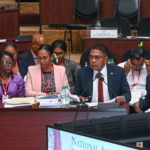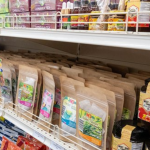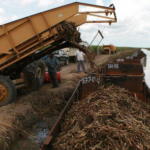The World Meteorological Organization (WMO) has chosen “Climate and Water” as the theme for this year’s celebration of World Meteorological Day on March 23rd. World Meteorological Day commemorates the coming into force of the Convention establishing the WMO in 1950.
This year’s theme highlights the fact that the global climate change crisis is inextricably linked to water security. Climate change invariably impacts the water cycle, causing extreme weather events, affecting the reliability of water supply, compromising water quality and threatening sustainable development, biodiversity and the enjoyment of the human rights to safe drinking water and sanitation.
It has long been accepted by most that anthropogenic activities have been a major contributor to climate change. This coupled with naturally occurring climate drivers such as El Nino and La Nina can have devastating impacts on lives and livelihoods. It is still not yet too late to limit or avoid altogether some of the worst impacts of climate change and variability through, among other things, improving our forecasting competencies, strengthening our water monitoring and management capabilities and perhaps most difficult of all, changing human behaviour.
Each of us can celebrate World Meteorological Day 2020 by committing today to embrace eco-friendlier practices and reducing our personal Carbon footprint. Also, it’s always a good idea to be in tune with what the weather’s going to be like in your area and how, over the long term, climate change will impact your local watershed. This World Meteorological Day, however, I encourage you to also get to know the people who make weather forecasts possible in Guyana. The work of our local meteorologists, while often forgotten, forms a critical link in the chain that helps us to understand local weather and climate and how we ought to respond on a daily basis.
This year’s theme for World Meteorological Day is quite fitting as Guyana increasingly faces the challenges associated with water stress, floods and droughts. The Hydrometeorological Service remains committed to improving forecasting competency, our national monitoring infrastructure and bolstering the management of our national water resources in an effort to combat the challenges of too little, too much or too polluted water. The Service is aware that Guyana cannot effectively manage water resources which it does not measure and therefore continues to take steps toward improving our hydrological observational network to provide the data and support services required for sound water management. Similar efforts are being made to strengthen Guyana’s meteorological observational network to ensure that quality data is easily accessible for decision support at all levels in the context of climate change and variability.
In conclusion, we must not forget our ambitions for 2030 as enshrined in Sustainable Development Goal 6 “Clean Water and Sanitation”; but equally important is the inclusion in this Goal of the need for integrated water resources management (IWRM) all levels. With increasing populations and the concomitant sharp increase in water demand, the need for IWRM could not have been more urgent. The Hydrometeorological Service assures you of its unyielding commitment towards IWRM as envisioned in its mandate, its support towards national development and quest for strengthened international collaboration. Happy World Meteorological Day 2020!
Dr. Garvin Cummings




